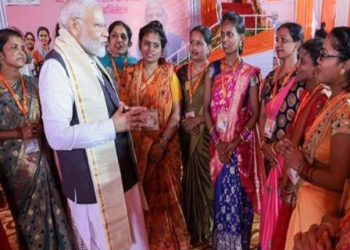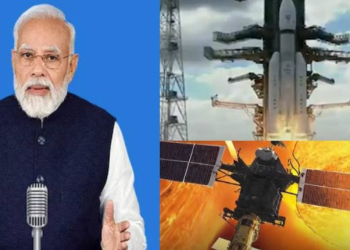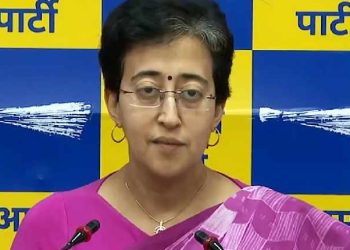New Delhi: Aimed at strengthening the government response at grassroots level, the Tamil Nadu government has set up District Climate Change Missions, a move welcomed by experts with a word of caution.
Earlier in March, the state government had issued orders for constitution of the “Tamil Nadu Climate Change Mission”, a first of its kind initiative with “the vision to make Tamil Nadu a climate smart state.”
In fact, the budget for 2021-22 had announced a total outlay of Rs 500 crore for the Tamil Nadu Climate Change Mission that would focus on activities and actions for adaptation and mitigation of climate change.
The 2004 Indian Ocean Tsunami was when Tamil Nadu was one of the worst affected areas. It proved to be a watershed moment for the state when it comes to disaster management. Since then, step by step, the efforts have only sustained and increased.
Two days ago, the government formed District Climate Change Missions in all its 38 districts. “In a pioneering initiative Tamil Nadu government has set up District Climate Change Missions in all 38 districts in TN. Missions would be headed by District Collectors as Mission Directors. All DFOs will additionally function as Climate officers #TNClimateMission #ClimateAction (sic), tweeted Supriya Sahu, Tamil Nadu’s additional chief secretary, Environment, Climate Change and Forest.
The Tamil Nadu government has accorded Rs 3.80 crore towards district level mission activities.
Terming it a “good development,” K Srikanth, weathercaster and author of widely followed blog about Chennai weather, ‘Chennaiyil Oru Mazhaikkallam’ which is popular as Chennai Rains, said: “There has been a marked changed in how the government wants to address the climate change issue. District Missions is part of the larger agenda that the government is taking a 360 degrees approach in order to create a climate resilient Tamil Nadu.”
“If you are better prepared for climate change, you are better prepared for disasters as well. Eventually, hopefully, these district wise cells will ensure that people on ground would be aware of what the impact of climate change can be,” he said.
S. Janakrajan, a professor at the Madras Institute of Development Studies (MIDS), welcomed the positive step happening for the first time at the district level but had a few words of caution.
Insisting on capacity building of the people and the government machinery, he said: “How many district level officials, including the DCs, know about what climate change is, what is the global impact and also the local issues? You should know what you plan to achieve and by what time? Further, if there is no’Risk & Vulnerability Assessment’ for each of the districts, how do you know what to focus on?”
Janakrajan pointed at another side of the problem as he said, “People cannot even differentiate between weather conditions and climate change. There is a need for improvements at all levels.”
He also hoped that the formation of such District Missions would bring about an overall approach so that officials and politicians stopped hiding behind climate change for disasters that are clearly man-made. “Urban flooding is clearly due to human inactions, faulty planning etc. No point in blaming climate change for it.”
A case in point Chennai’s 2015 flood.
(IANS)



















